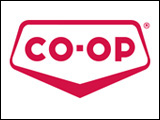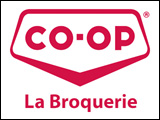
The cutting and deboning of meat carcasses by MCC volunteers in Winkler prior to canning and cooking the pork are perhaps at the very heart of the canning operation to provide food aid for many.
It happened again – the Mennonite Central Committee (MCC) held its own version of a pig killing bee and it’s called meat canning. Not several families butchering a hog or two, but hundreds of volunteers coming to Winkler Meats to help butcher and can pork for food aid.
You remember pig killing day, don’t you? You got up when it was still dark, gathered at someone’s home for an early breakfast and waited for enough light so someone could get a clear shot at a sow, it was sheared, drawn and gutted. They were days people remember!
The canning idea arose in World War II among the Mennonites. As the war continued, the number of hungry, homeless, war-suffering people grew and their cry for help became audible. In Reinland residents utilized a vegetable cannery to can meat in glass jars for food aid.
Now 60 years later volunteers from across the province – youth, seniors, and various groups converged in Winkler the evening of November 19 to begin a four-day pork canning campaign, hopeful the meat they’re canning will truly make a difference to people in need.
Wilf Unrau, the chairman of MCC’s meat canning campaign in Manitoba, said people came from across the province, from Niverville to Steinbach, and from places like Altona to Crystal City, including church and school groups, all stepping up to aid the malnourished.
An important core team of Peter Reimer, Tolstoi; Steven Bricker and Josh Voth, USA; and Viktor Schwendich, Germany, travel with the mobile canner. Starting Wednesday evening volunteers worked around the clock in a 60-hour canning marathon that ended early Saturday.
Now in its seventh season, Unrau was optimistic saying that a hard-working committee had most of the volunteers and needed only a few more donations to cover expenses.
Over 300 MCC canning volunteers – 120 daily – worked in four six-hour shifts to process over 190 sows – deboning, cutting, packing the pork meat in cans, cooking, washing and labelling all of the over 22,500 cans at Winkler Meats, which had already killed and eviscerated the sows.
The canning project follows last year’s success when volunteers also slaughtered 180-plus sows and produced 22,000 28-ounce cans of pork meat, food aid shipped to North Korea.
The canning began with a group of 30 volunteers taking Wednesday’s first six-hour shift, which began at 6:00 p.m. On a tour of operations Thursday, Unrau said this year they were off to a smooth start with boxes, each holding 24 cans piling up in the warehouse.
Preparations of course began much earlier as an organizing committee sought donors and sponsors of animals for the project and arranged for the facilities. Elaine, son Warren Dyck and Winkler Meats staff began early and sides from 90 sows hung in the cooler when canning began.
There’s good support with Manitoba farmers, agri-businesses and individuals donating or sponsoring livestock. Winkler was the first of three stops in Canada for the canner, which also goes to 14 U.S. states. Two stops in Ontario in April will wind up the canner’s 62nd season.
Unrau said the work is hard, but the collective mood is spirited. “I think something like this gives people a sense of satisfaction.” Volunteers took part in the entire canning process, from deboning meat, to stirring the cooking vats, to washing, filling, cooking and labelling the tins.
Margaret Unrau again arranged the canning days’ cafeteria. Canning support extended beyond volunteers: the larger Winkler area church and ladies groups preparing hot meals, served twice daily and at night. Sandwiches, cheese, cookies and fruit were always on hand.
“It was a good operation, and the last cans came out of the pressure cooker at 10:40 a.m. Saturday. A dedication service was held at 10:00 a.m.,” said Unrau.
The meat is likely going to North Korea or Rwanda, the pork supplies protein for a meal.



